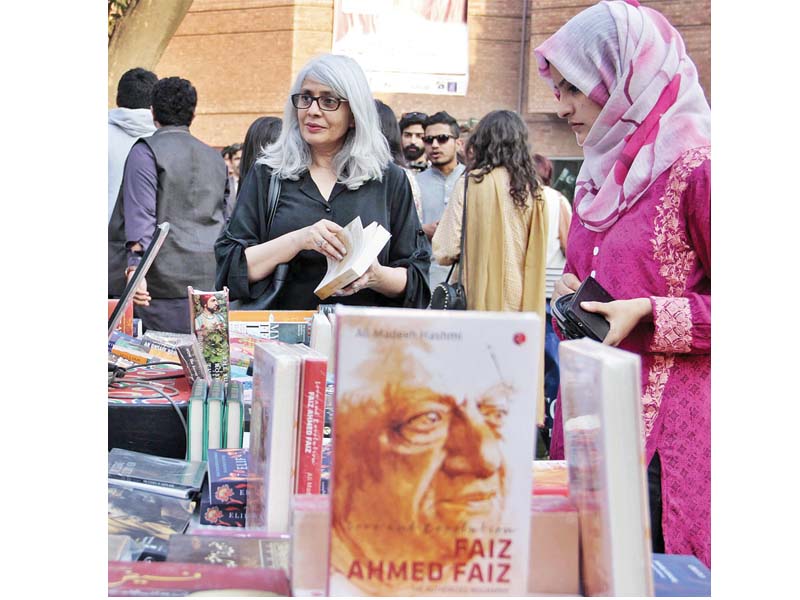
LAHORE: Recollections about Faiz Ahmed Faiz’s literary genius and Punjabi Sufi poets were the highlight of third day’s activities at the international festival at the Alhamra Art Centre on Sunday.
‘A Tribute to Punjabi Resistance Poetry’ was the title of the well-attended session in which speakers presented their views about Punjabi poets and their compositions. The speakers included Munnu Bhai, Mushtaq Sufi, Usman Peerzada and Anjum Qureshi. It was moderated by Sughra Sadaf.
On the occasion, Mushtaq Sufi said, “Punjabi language has never been a language of court, state or government. None of the great Punjabi poets grew under state patronage. All of them were people’s poets and questioned the authority, injustice and advocated peoples’ cause through their composition.”
He quoted Baba Farid, a poet during 11th century, as saying that Islam consisted of six constituents and the sixth was food which was the most basic element.
Reciting his few verses, he said Farid’s poetry advocated the voice of peasants, who were suffering at the hands of tyrant rulers of that time.
Similarly, he added Baba Guru Nanak, who is another great poet of Punjabi, wrote against the cruelties of the rulers of his times. He was an eyewitness of the attack of Babar. He maintained Nanak was in Aimanabad (presently Gujranwala) where a great battle took place and people were massacred. “Guru Nanak expressed people’s agony against all the bloodshed through his poerty.”
He further said Shah Hussain, another great poet, questioned not only Qadi of that time but political government too. “The Mughal emperor had imprisoned him declaring him an apostate. He was a true peoples’ representative,” he added.
Mushtaq Sufi contended there was a long list to share and talk about Punjabi poets, their poetry and an element of resistance in it.
While speaking about the poets during post colonisation period like Ahmad Rahi, Shiv Kumar Batalvi, Ustad Daman, Najam Hussain Syed, he said all these poets also wrote poetry of resistance. Their writings were an effort to spread the message of peace.
Mushtaq Sufi said Faiz Ahmad Faiz was the greatest poet of Urdu whose words symbolise resistance. He said when asked in an interview why he did not write in Punjabi, Faiz said he wanted to be a great poet and in a language that had as great poets as Bulleh Shah and Waris Shah, he could never become a great one.
Similarly, Munnu Bhai said Faiz Ahmad Faiz carried the influence, symbolism and tradition of these poets in his poetry. “Faiz could not be what he is without these Punjabi poets. Nawaz Sharif, Imran Khan etc were symbol of status quo and fundamentalism. They could not bring a change,” he said. “A change in our society is possible through these Punjabi poets, who are progressive in their essence.”
On the occasion, Dr Sughra Sadaf said Punjabi poetry and poets were being Islamised- the process accelerated by Zia regime. Mosques were built at the shrines of these poets and restrictions in the name of Islam were imposed there. They were being confined and labelled as “Muslims” under Sufism- an attempt to hide their diversity of thought, pluralism and anti-authority.
Quoting a personal experience during her visit to the shrine of Baba Farid, Sughra said she was stopped from entering the premises by the administration quoting women were not allowed to enter shrines. She maintained it was against Farid’s thoughts, who respected women and treated them equal. She said his teachings were without boundaries of race, colour, religion, creed and gender.
Published in The Express Tribune, November 21st, 2016.














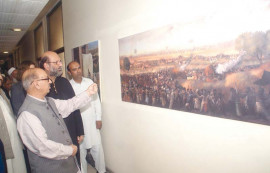
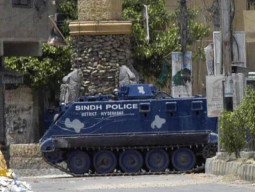
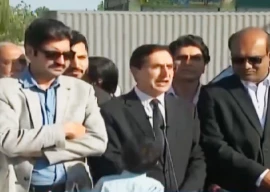
1713281138-0/US-Treasury-Secretary-Janet-Yellen-(2)1713281138-0-270x192.webp)
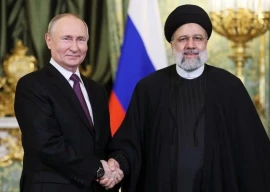
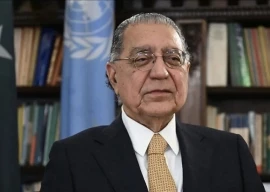
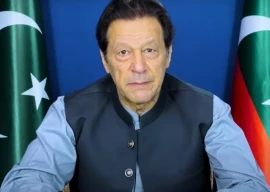
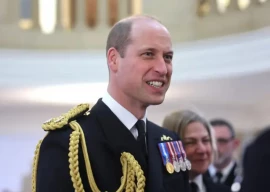















COMMENTS
Comments are moderated and generally will be posted if they are on-topic and not abusive.
For more information, please see our Comments FAQ